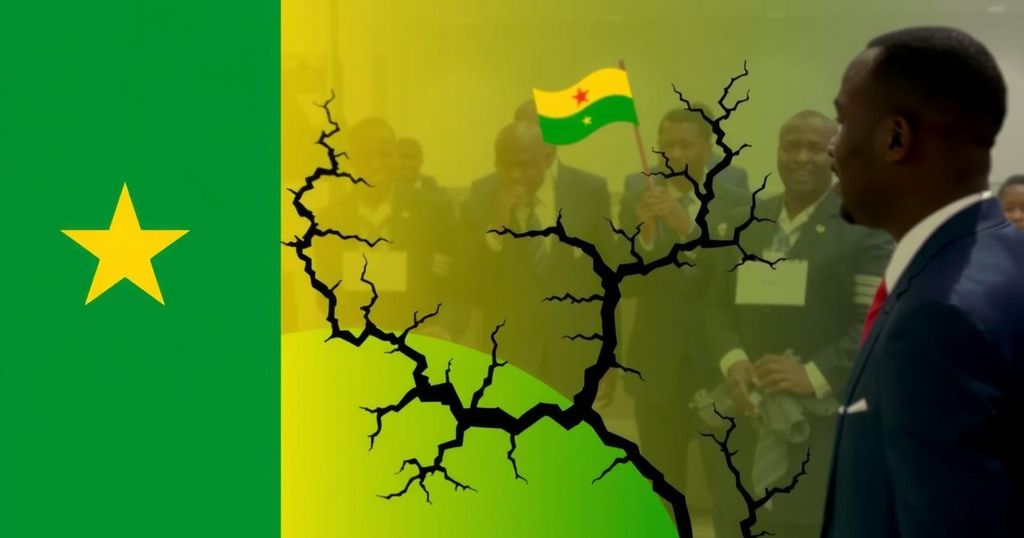Guinea Bissau President Indefinitely Postpones Upcoming Elections
President Umaro Sissoco Embalo of Guinea Bissau has postponed legislative elections initially scheduled for November 24, extending the current political limbo. Financial difficulties and logistical challenges contributed to the decision, which further complicates the political climate as the nation continues to face instability and uncertainty regarding the upcoming presidential elections.
On Monday, President Umaro Sissoco Embalo of Guinea Bissau officially announced the indefinite postponement of the legislative elections that had been scheduled for November 24. This decision prolongs the political uncertainty that has been prevalent in the small West African nation. Embalo had initially set the election date following the dissolution of parliament last December, triggered by violent clashes that he deemed an attempted coup. Given the recent logistical challenges and financial constraints highlighted by Minister Aristides Ocante da Silva, it became apparent that proceeding with the elections would be problematic. Embalo’s political adviser confirmed the cancellation of the previous decree that established the upcoming vote, although a new date has yet to be determined. The situation is further complicated by the imminent presidential elections, with a coalition opposing the president holding a majority in parliament, exacerbating the tensions within Guinea Bissau’s governance. This nation has a history of political instability, marred by corruption and previous coups since gaining independence from Portugal, and continues to grapple with significant socio-economic challenges.
Guinea Bissau, one of the poorest nations globally, has endured a tumultuous political landscape since achieving independence from Portugal, characterized by a series of coups and governance crises. The current president, Umaro Sissoco Embalo, was elected in December 2019 amid considerable controversy surrounding his mandate’s legitimacy and the timing of forthcoming presidential elections. Following his dissolution of parliament in December 2023, the announcement of elections set for November 2024, now postponed, reflects ongoing instability and the logistical and financial difficulties that complicate the democratic process within the nation.
In conclusion, the indefinite postponement of the legislative elections in Guinea Bissau underscores the persistent political turmoil faced by the nation. With logistical challenges, financial constraints, and the burden of an opposition majority in parliament, the government must navigate through political instability while attempting to restore order. As the situation develops, the urgency for a clear electoral timeline remains critical to ensure the country can move toward a more stable and democratic future.
Original Source: punchng.com




Post Comment